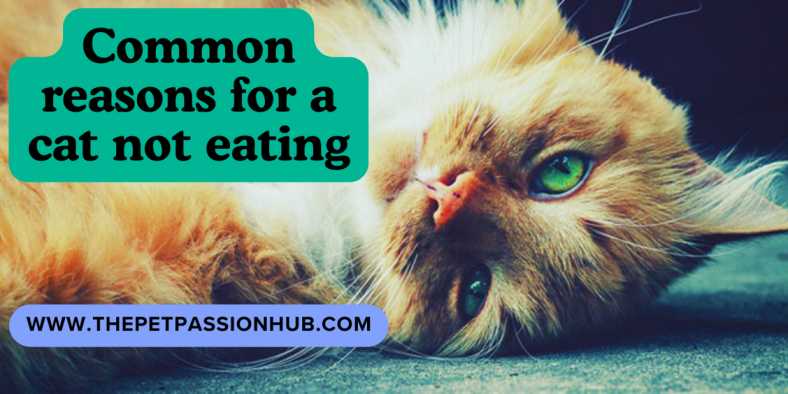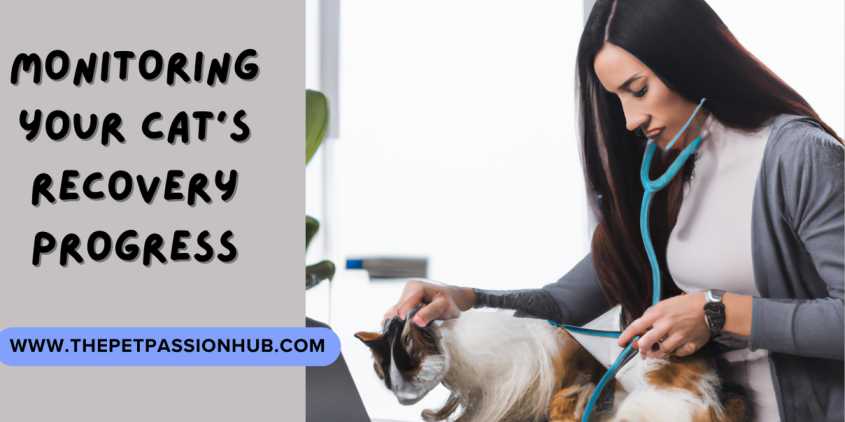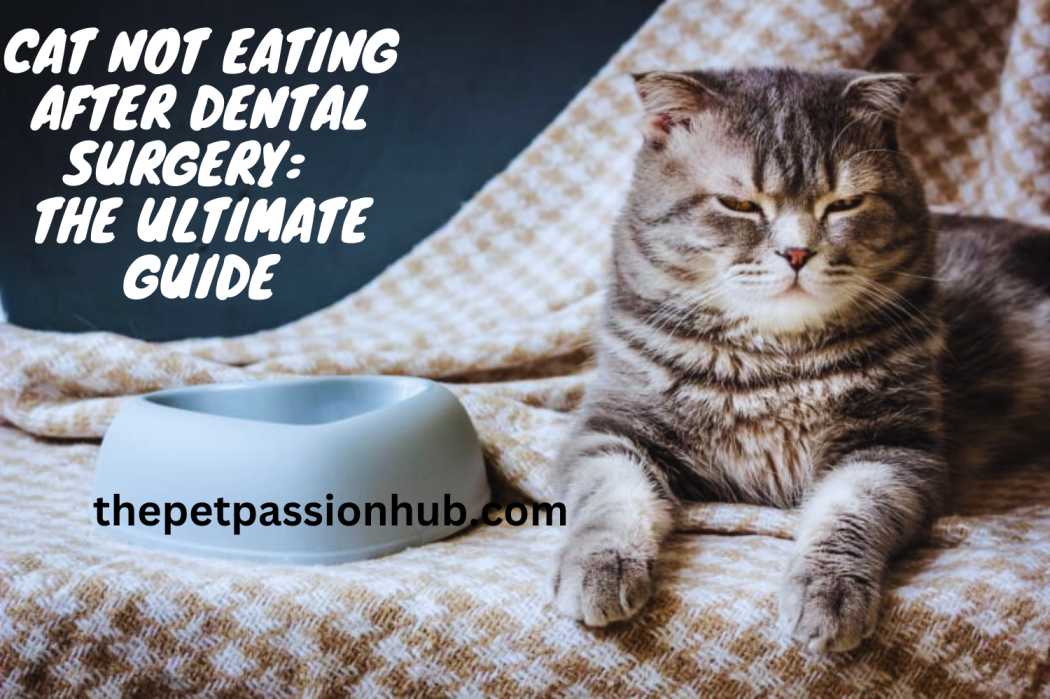Introduction
Dental surgery for cats is a common procedure that can significantly improve their oral health and overall well-being.
However, the recovery process after such surgery can be challenging, especially when it comes to their eating habits.
It’s not uncommon for cats to experience a reduced appetite or avoid eating altogether in the days following dental surgery.
Understanding the reasons behind this behavior and knowing how to properly support your feline friend. During this crucial recovery period is essential for their healing and comfort.
While it may be distressing to witness your cat not eating after dental surgery. It’s important to recognize that this response is often a natural part of the recovery process.
Pain, discomfort from swollen gums, and changes in taste perception due to medications can all contribute to a decreased appetite in cats post-surgery.
As caregivers, our role revolves around providing tailored support and understanding as we help them navigate through this critical phase. In the following sections of this guide.
We’ll delve into strategies for encouraging your cat to eat after dental surgery, understanding potential underlying issues. And working closely with your veterinarian to ensure your cat’s successful recovery.
Understanding the dental surgery process
Understanding the dental surgery process for your feline friend can be both daunting and crucial in ensuring their speedy recovery.
As a pet owner, it’s essential to familiarize yourself with the various stages of dental surgery. From pre-operative testing to anesthesia administration and post-operative monitoring.
At each step, your veterinarian will strive to provide the best possible care. while managing risks and ensuring your cat’s comfort.
In addition to understanding the surgical process, it’s important to focus on the recovery phase. Proper nutrition plays a critical role in aiding your cat’s healing after oral surgery.
Providing soft food options that are easy to chew and swallow is imperative in preventing discomfort or potential complications.
Opt for high-quality wet food or consider blending dry food with water to create a soft consistency that reduces strain on your cat’s mouth.
When crafting meals for your recovering feline, prioritize balanced nutrition by incorporating protein-rich options. While avoiding excessive carbohydrates or sugars that could hinder healing.
Additionally, consulting with your veterinarian about specific dietary needs or recommended supplements can further optimize your cat’s post-surgery recovery journey.
Why Is My Cat Not Eating After Dental Cleaning or Dental Surgery?
Common reasons for a cat not eating

Cats are notorious for being picky eaters. But when a cat refuses to eat after dental surgery, it can be a cause for concern.
One common reason for a cat not eating after dental surgery is pain or discomfort. Cats may experience soreness in their mouth and gums. Which can make it painful for them to chew or swallow food.
Another reason for a cat not eating after dental surgery could be stress or anxiety. The trauma of the surgery itself, as well as being in an unfamiliar environment such as the veterinary clinic, can cause cats to lose their appetite.
It’s important to offer comforting and familiar surroundings for your cat during this time to help alleviate any stress they may be feeling.
In some cases, medication prescribed post-surgery can also contribute to loss of appetite in cats. Pain medications or antibiotics may cause nausea or an upset stomach, making it unappealing for cats to eat.
Monitoring your cat’s behavior and discussing any concerns with your veterinarian will help determine the best course of action to encourage your feline friend to start eating again.
Tips to encourage eating post-surgery
One effective way to encourage eating post-surgery is to offer a variety of soft and appetizing food options.
Cats often find it challenging to eat hard kibble or dry food after dental surgery, so switching to wet food or even gently warming their meals can make them more appealing.
Adding a bit of broth or water to the food can also increase its palatability and make it easier for the cat to consume.
Another helpful tip is to create a calm and comfortable eating environment for your cat. Minimizing stress and distractions during meal times can help the cat feel more at ease and willing to eat.
Providing quiet, secluded feeding areas away from other pets or noisy household activities can encourage a speedy return to normal eating habits.
The Truth About How Long Kittens Cry For Their Mom
Monitoring your cat’s recovery progress

As a concerned cat owner, monitoring your feline friend’s recovery after dental surgery is crucial for their well-being. One effective way to track their progress is by closely observing their eating habits.
Keep an eye on their appetite and the types of food they are able to consume comfortably. In addition, regular check-ins with the veterinarian are essential to assess any potential complications and ensure that the recovery process is going smoothly.
By maintaining open communication with your vet and staying proactive in monitoring your cat’s behavior, you can play a significant role in facilitating a successful recuperation.
Furthermore, examining your cat’s overall demeanor and activity levels can also provide valuable insights into their recovery progress.
Look for signs of increased energy or curiosity as indicators that they are regaining their strength.
Conversely, if your cat appears lethargic or displays unusual behaviors such as hiding or excessive vocalization, it may be a signal that further medical attention is required.
Being attuned to these behavioral cues allows you to intervene promptly if necessary, ultimately aiding in the swift and complete recovery of your beloved pet.
When to seek professional help
If your cat is not eating after dental surgery, it can be a worrying and frustrating experience. In some cases, the issue may resolve on its own as the cat recovers from the procedure.
However, if your cat continues to refuse food for more than 24 hours or shows signs of distress, it’s essential to seek professional help.
A veterinarian can conduct a thorough examination to rule out any complications from the surgery or identify underlying health issues that may be causing the loss of appetite.
Delaying seeking professional help for a cat not eating after dental surgery can lead to dehydration, weakness, and further health complications.
Even if there are no visible signs of discomfort, consulting with a vet sooner rather than later can ensure that any potential problems are addressed promptly.
Additionally, receiving professional guidance can provide peace of mind for pet owners who are concerned about their cat’s post-surgery recovery.
Conclusion: Ensuring a smooth recovery for your cat
Ensuring a smooth recovery for your cat after dental surgery is crucial for their overall well-being. One key aspect to focus on is ensuring that your cat has access to soft, palatable food that won’t cause discomfort after oral surgery.
This may include wet food or even specially formulated recovery diets recommended by your veterinarian.
Additionally, providing a comfortable and stress-free environment for your cat during their recovery period can greatly aid in their healing process.
Creating a quiet and cozy space with familiar bedding and toys can help reduce anxiety and promote relaxation.
Furthermore, monitoring your cat’s behavior and appetite closely is essential in gauging their recovery progress.
If you notice any signs of pain or reluctance to eat, it’s important to reach out to your veterinarian promptly.
Additionally, maintaining good oral hygiene practices post-surgery, such as regular tooth brushing and dental check-ups, can help prevent future complications and ensure the long-term well-being of your feline friend.
By prioritizing these aspects of care, you can help ensure a smooth and successful recovery for your cat after dental surgery.
FAQs
- Why is my cat not eating after dental surgery?
A- The discomfort from the surgery and the use of anesthesia can cause temporary loss of appetite in cats. - How long can a cat go without eating after dental surgery?
A- It’s important to monitor your cat closely, but most cats should resume eating within 24-48 hours after surgery. - What can I do to encourage my cat to eat after dental surgery?
A- Offer enticing, soft foods such as canned tuna or baby food, warm them up slightly, and hand-feed if necessary. - Should I be concerned if my cat is not eating after dental surgery?
A- If your cat hasn’t eaten for more than 48 hours, consult your veterinarian for further advice and possible intervention. - Is it normal for my cat to show signs of discomfort when trying to eat after dental surgery?
A- Yes, it’s common for cats to experience some discomfort while chewing or swallowing immediately post-surgery. - Can pain medication affect my cat’s appetite after dental surgery?
A- Yes, some pain medications may cause temporary loss of appetite in cats; consult your vet for alternative options if needed. - Will my cat require a special diet after dental surgery?
A- Your vet may recommend a soft or liquid diet initially, gradually transitioning back to their regular food over time. - Are there any warning signs I should look out for if my cat is not eating after dental surgery?
A- Watch for signs of dehydration, lethargy, vomiting, or any other unusual behavior and contact your vet promptly if observed.
